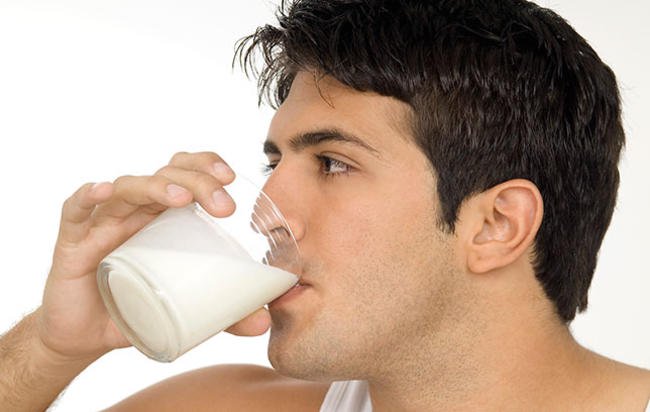Is Milk really healthy???

Hi Steemit Friends,
"Milk is a deadly poison," according to the Dairy Education Board. In fact, if you peruse this special interest group's Web site, notmilk.com, you'll find dozens of articles about the purported evils of this popular beverage. One claim, for example, is that milk from cows contains cancer-causing hormones and dairy industry dollars have kept that fact bottled up. All of which may leave you second-guessing your next sip.
However, as a nutritionist, I've found that most men thrive on milk, whether their goal is to lose fat or build muscle. So to be sure it's safe, I've investigated all the anti-milk claims, sifting through the research while also turning a critical eye to pro-milk propaganda. After all, the only agenda I have is my clients' health. The result: all your milk questions, answered.
Is Milk a Fat-Burning Food?
Maybe. In a 6-month study, University of Tennessee researchers found that overweight people who downed three servings a day of calcium-rich dairy lost more belly fat than those who followed a similar diet minus two or more of the dairy servings.
In addition, the researchers discovered that calcium supplements didn't work as well as milk. Why? They believe that while calcium may increase the rate at which your body burns fat, other active compounds in dairy products (such as milk proteins) provide an additional fat-burning effect.
Of course, the key to success is following a weight-loss diet to begin with. After all, downing your dairy with a box of doughnuts is no way to torch your gut.
Does It Build Muscle?
Absolutely. In fact, milk is one of the best muscle foods on the planet. You see, the protein in milk is about 20 percent whey and 80 percent casein. Both are high-quality proteins, but whey is known as a "fast protein" because it's quickly broken down into amino acids and absorbed into the bloodstream. That makes it a very good protein to consume after your workout.
Casein, on the other hand, is digested more slowly. So it's ideal for providing your body with a steady supply of smaller amounts of protein for a longer period of time—like between meals or while you sleep. Since milk provides both, one big glass gives your body an ideal combination of muscle-building proteins.
Do Hormones Make Milk Unhealthy?
Not unless you're injecting the milk. Here's the full story: In 1993 the FDA approved the use of recombinant bovine growth hormone (rBGH) in cattle. This practice resulted in greater milk production at less cost to the dairy farmer, a savings that has been passed on to you at your local supermarket. But it has also sparked much controversy, because rBGH boosts milk's concentration of insulin-like growth factor (IGF), a hormone that's been linked to cancer.
Unlike steroid hormones, which can be taken orally, rBGH and IGF must be injected to have any effect. That's because the process of digestion destroys these "protein" hormones. So drinking milk from hormone-treated cows doesn't transfer the active form of these chemicals to your body. However, there is one ethical downside to consider: It's not good for the cows. Canadian researchers discovered that cows given hormones are more likely to contract an udder infection called mastitis.
What About Antibiotics?
No one really knows. Some scientists argue that milk from cows given antibiotics leads to antibiotic resistance in humans, making these types of drugs less effective when you take them for an infection. But this finding has never been proved.
If you're uneasy, you can purchase antibiotic-free (and typically hormone-free, as well) milk from specialty grocers, such as Trader Joe's or Whole Foods, or select USDA-certified organic milk, which is available at most supermarkets.
Skim or Whole?
It depends on your taste. While you've probably always been told to drink reduced-fat milk, the majority of scientific studies show that drinking whole milk actually improves cholesterol levels, just not as much as drinking skim does.
One recent exception: Danish researchers found that men who consumed a diet rich in whole milk experienced a slight increase in LDL cholesterol (six points). However, it's worth noting that these men drank six 8-ounce glasses a day, an unusually high amount. Even so, their triglycerides--another marker of heart-disease risk—decreased by 22 percent.
The bottom line: Drinking two to three glasses of milk a day, whether it's skim, 2 percent, or whole, lowers the likelihood of both heart attack and stroke—a finding confirmed by British scientists.
If you're dieting, the lower-fat option is an easy way to save a few calories. When it comes to building muscle, though, whole milk may be your best choice: Scientists at the University of Texas medical branch in Galveston found that drinking whole milk after lifting weights boosted muscle protein synthesis—an indicator of muscle growth—2.8 times more than drinking skim did.
Source: Menshealth